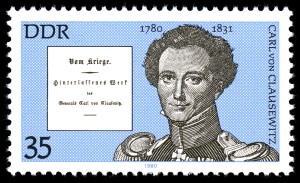Politics as a Peculiar Business: Richard Wagner Revives a Tradition of Entangled Poltical Economy
In Politics as a Peculiar Business, Richard Wagner explains that the world of the political and the world of the economic are by no means separate. Political and economic theory are complementary components of social theory. A theory that promotes detailed analysis must include both. It must be a theory of “entangled political economy”.
The widespread adoption of neoclassical economics and econometric methods, with deterministic orientation and removal of the political from economics proper, shifted theory away from plausible (open-ended) reasoning and toward demonstrative reasoning (31). No room was left for the creative power of human choice from which springs forth the novelty inherent in society. Agents communicate to one another through the Walrasian auctioneer, interacting only with regard to prices and quantities (Axtell 2005). This move to demonstrative reasoning represents a shrinking of the domain of economic analysis. For classical economics, the institutional environment and agents acting within it “comprised the foreground” of analysis (9-10). By moving institutional arrangements to the background, much of the content of political economy was lost. Economists may have gained clarity by this formalization, but that clarity came at the cost of the loss of context. The conflict and cooperation that comprise and transform the patterns of interaction in society faded to the background of analysis. This outcome is unnecessary, especially as complex methods such as agent-based modeling and network analysis have become available to economists at continually shrinking costs.
Wagner suggests that we move away from simplistic modeling of human agents as automatons who do not express any will or interaction with one another except when motivated by changes in prices. Life within social orders is more complex. Agents themselves drive change within social systems. Absent commitment to a particular ethic or morality, agents see all objects in the world as potential means for accomplishing ends. For better or for worse, they see manipulation of the political order as such means. Political manipulation reverberates throughout society as changes in legal and political structure reorient the payoffs for actions by other agents much as tectonic shifts reshape a physical landscape. The continual integration of the political sphere with the private promotes an empirical system of entangled political economy whose structure is constantly being generated and transformed by the action of agents, especially those who are politically connected. As Buchanan noted, “order [is] defined in the process of its emergence (1999).”
The detailed theory presented by Wagner allows the analyst to more closely approach the use of power in society. Power is the essence of the political. Clausewitz famously stated that “war is the continuation of politics by other means.” The reverse is true. Politics is generated by the orientation of expectations around sources of power. In particular, state politics is generated by action within a network of governance whose nodes have successfully attained a legitimated claim over the use of violence. By this power and others, agents who come into conflict may, to varying degrees, engage in war.  Such political activity is ubiquitous in society. Competing agents are willing to impose costs on others by use of the power of the state or other political apparatuses. Given this ubiquity, economy and state should not be divided in final analysis.
Such political activity is ubiquitous in society. Competing agents are willing to impose costs on others by use of the power of the state or other political apparatuses. Given this ubiquity, economy and state should not be divided in final analysis.
In sum, Wagner provides a long-needed reformulation of political economy. His framework for analyzing political action moves us away from additive political economy, best represented by traditional neoclassical analysis, to entangled political economy, a framework that recognizes the complexity inherent in society. This framework leaves room for the integration of complex methods, allowing for fine-grained investigation of social phenomena. Entangled political economy returns the theoretical practice of economics to the more robust tradition of social economy that was prominent throughout the substantial majority of the history of economic thought.
